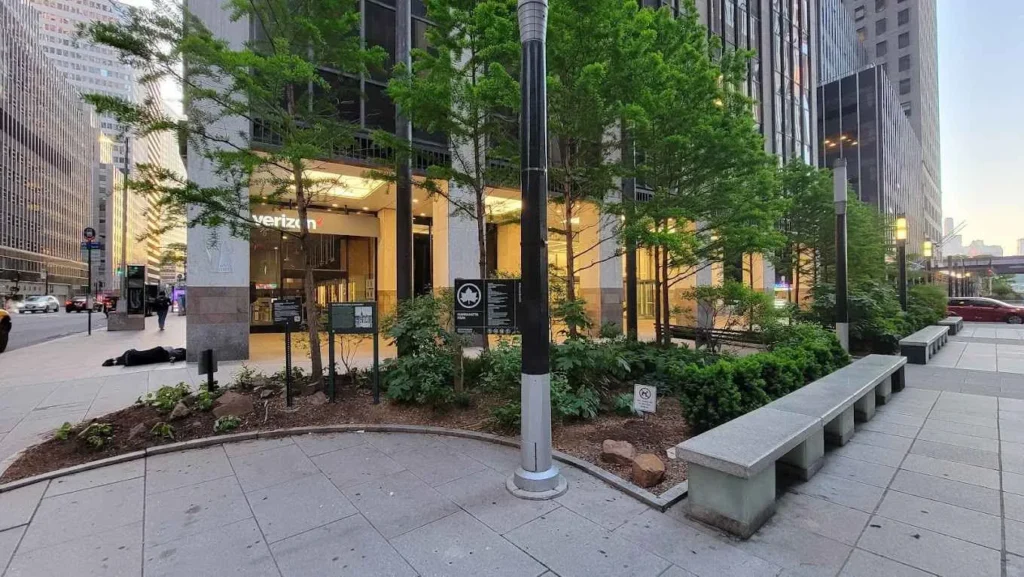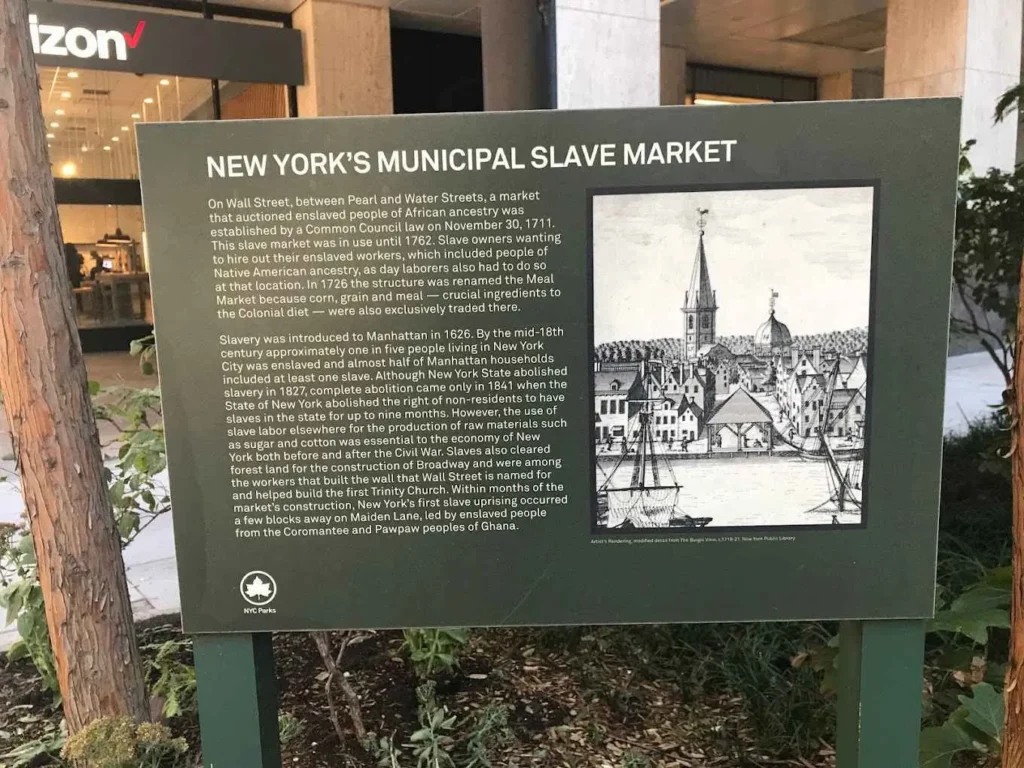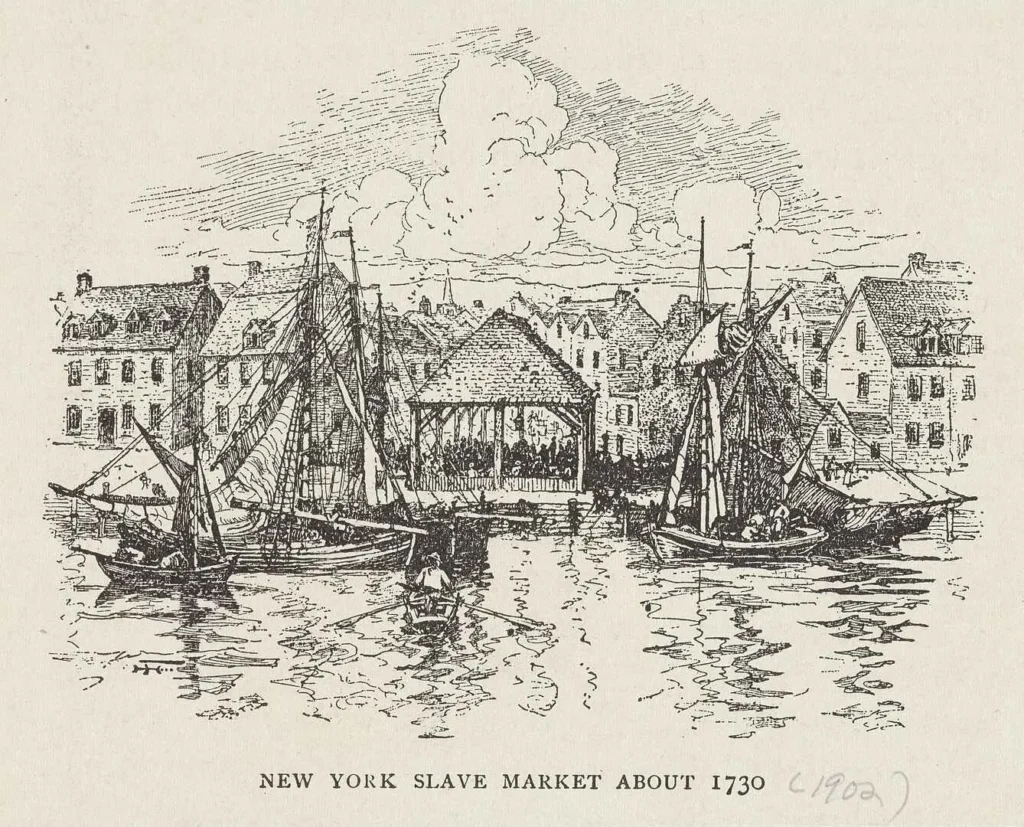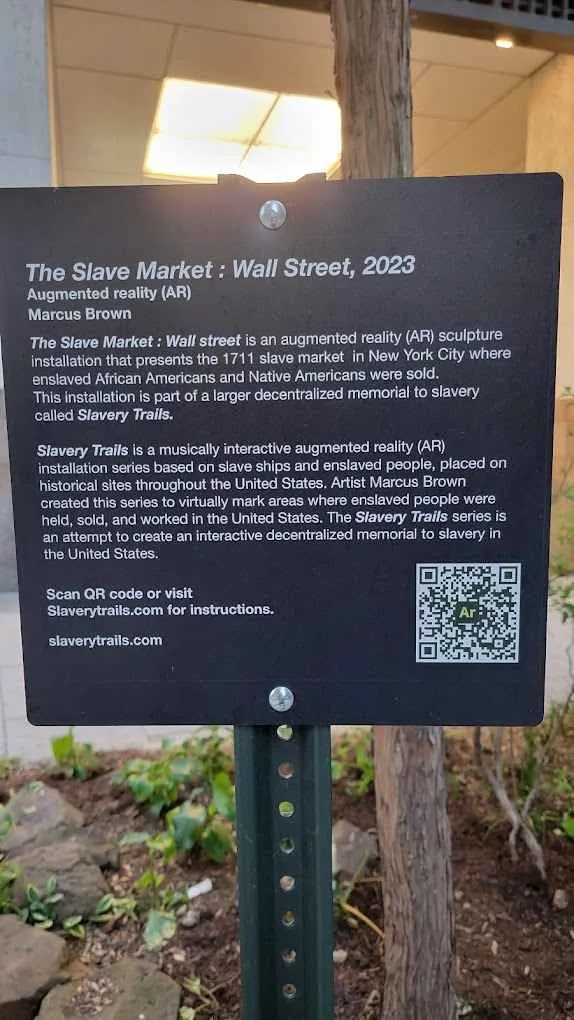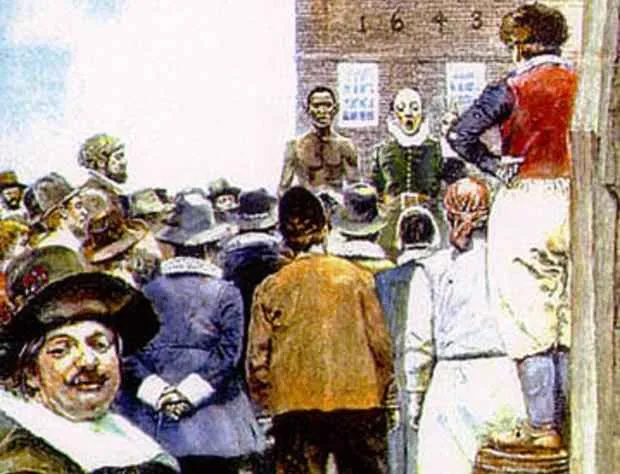At the intersection of Wall Street and Water Street in Lower Manhattan, you’ll come across a sign that marks a significant and often overlooked location in New York City’s history. This marker serves as a reminder of a dark chapter in the city’s past.
The Early 18th Century and the Slave Trade
In the early 18th century, the buying, selling, and trading of slaves was conducted privately, with enslaved people often sent out on their own to find work. However, the presence of Black slaves in the streets soon became a point of contention among white New Yorkers, who feared potential uprisings.
The Establishment of the First Official Slave Market
On November 30, 1711, New York City established its first official slave market, forcing any slave owners wishing to hire out their enslaved workers to do so at this specific location. At that time, a staggering 40% of New Yorkers were slave owners, and New York was the largest slave-owning colony in the northern United States.
The Petition to Close the Market
By the mid-18th century, wealthy merchants began to see the slave market as an obstruction to their business interests. In 1762, they petitioned to have the market closed. Despite this, the buying and selling of enslaved people continued throughout the city for many more years.
New York State would not officially abolish slavery until 1827, long after the market had closed. This dark period in history left a lasting impact on the city’s culture and economy.
The information placard
At the corner of Wall and Pearl Streets, there was an official city slave market from 1711 to 1762.
The sign marking the site of the slave market, conceived during the Occupy Wall Street protests in 2011, was officially unveiled in 2015. The sign is located in a small park at the northeast corner of Wall and Water Streets, one block from the historic slave market.
